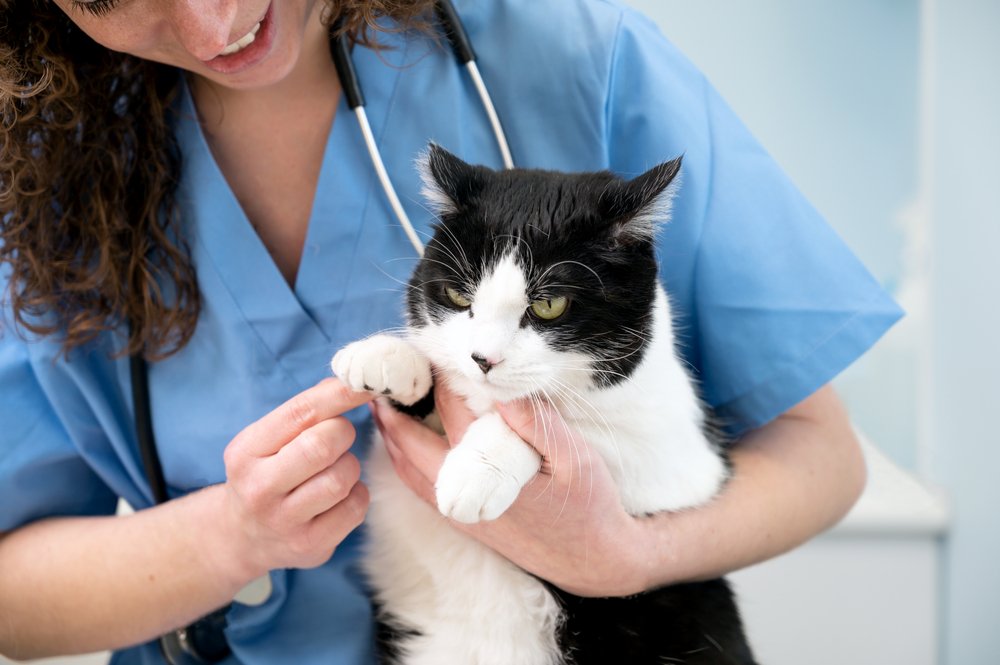The importance of annual check ups for your pet
Whether your pet loves coming to the vet or doesn’t, annual checkups are very important for dogs and cats. Here’s why you should be visiting us at least once a year.
Vaccinations
Yearly vaccinations for dogs and cats save lives by protecting your pet from serious, life threatening diseases. Vaccines have proven life-saving benefits with minimal associated risks. Most vaccines offer protection for one year meaning in order to keep your pet protected, a yearly vaccination booster is necessary.
Breed predispositions
Some breeds are predisposed to certain health risks, diseases or conditions at particular stages of their lives. Visiting the vet every year allows vets to monitor these potential health conditions and ensure they don’t cause your pet issues.
Identifying early signs of possible health issues
Because pets age at a more rapid rate than humans, health conditions can appear quickly. The ability to spot small problems before they escalate is a major motivator for booking in annual check ups. If your pet has been experiencing symptoms or displaying unusual behaviours, you’ll be able to let your vet know at the time of your annual consultation.
A baseline for your pet’s health
Even if your pet is as fit as a fiddle, it’s a good idea to visit the vet so they can take note of things like heart rate, weight, teeth condition, eyes and ears. This will be noted in their file so that the next time they come and visit, the vet knows what is considered normal for your pet and can identify potential health issues before they escalate.
What to expect when you have an annual consultation at our vet clinic?
After booking an appointment, you’ll arrive at our clinic with your pet on a leash or in a cage. If you have a dog, the vet nurse at reception may ask you to weigh them so they can add their weight to the file. Once the vet is ready, you’ll be taken into one of our clean consultation rooms.
From there, your vet will check the following:
Assessment of overall alertness and appearance: Does your pet appear bright, alert and responsive?
Checking their temperature, heart rate and capillary refill time.
Examination of the eyes, ears, nose, and mouth: Are there any abnormalities present? The vet may use an ophthalmoscope and an otoscope to look at your pet’s eyes and ears.
Listening to the heart and lungs with a stethoscope: Is their breathing unusual, a heart murmur, or a heart rhythm abnormality?
Checking of lymph nodes: Are any enlarged or painful?
Checking of joints (especially for dogs) to check for lameness, ACL condition or arthritis.
Book your pet in for their annual checkup
Our caring and experienced vets in Doncaster will make sure your pet is healthy and happy. Contact us to book an appointment today!


